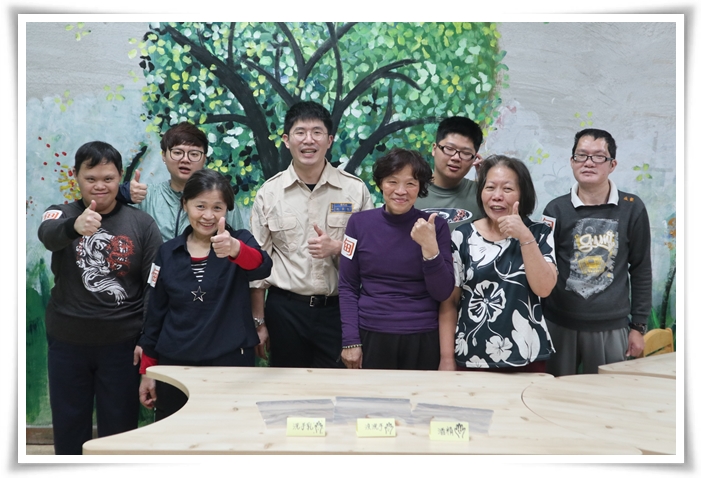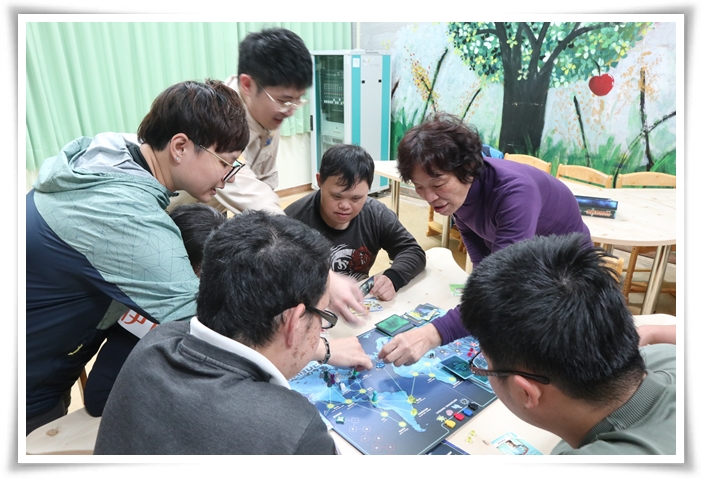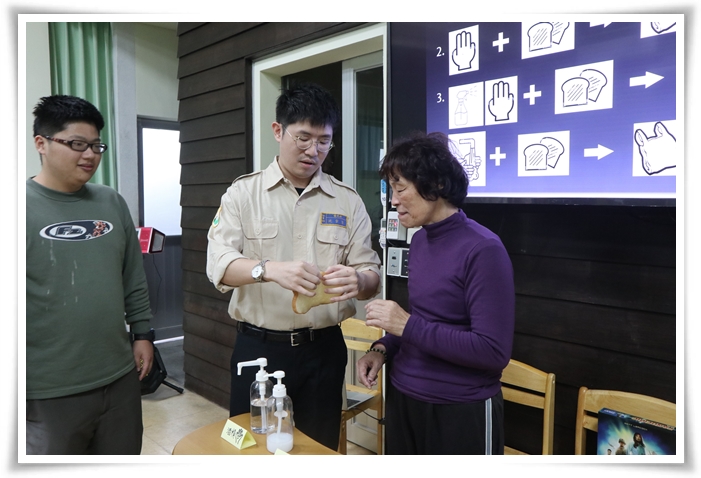
Recently, COVID-19 spreads like wildfire. It caused a significant impact on the whole community as well as the individuals. More than that, the pandemic made it even harder for persons with disabilities to take prudent steps for self-protection and support receipt. Thus, as an organization serving persons with disabilities, Eden makes sure all the epidemic prevention information is accessible, which means that all the information is not only delivered well but also is received through the most appropriate way. This also comply with the Convention on the Rights of Persons with Disabilities (CRPD) Article 21* - the right of access to information. Thus, Eden hosted a fun health education workshop so that persons with disabilities not only realized the importance of health and hygiene but was also able to put it into action.

To promote the personal hygiene and prevent epidemic, a health education workshop was organized for residents in Eden’s Yilan Education and Nursing Institute. Tsung-chieh Shen, who has the professional medical background and serves as the substitute civilian serviceman at the institute, proposed a fun scientific experimental class for the residences as a way to educate health and hygiene knowledge. He used simple experiments and board games to make residents understand the knowledge about epidemics prevention. The whole process of game and experiments motivated the residents to think logically and creatively, which really helped them to absorb the knowledge and practice their skills in a very subtle way. By conducting toast experiments, the residents were able to visualize the horror of bacteria and then realize the importance of hand-washing habits.In that experiment, he asked the residents to touch slices of toast with alcohol-sterilized hands, hand-washed hands, and unwashed hands. Then seal the toast for one week to observe the change of the toast and the growth of bacteria. After a week, the residents noticed that the moldy black blocks were caused by unwashed hands. A resident went to wash hands directly as soon as he saw the mould toast. Even though the experiment was simple, it helped residents easily understood the importance of personal health and hygiene, and helped to develop a good hand-washing habit.More than that, we want to maximize the outcome of the workshop through how the program was facilitated. A total of 16 residents participated in this experimental program. The residents were divided into small groups when playing board games so that they were able to practice their social skills with others while learning those knowledge.

When talking about caring, Eden Foundation always takes a holistic approach. During the pandemic period, we not only carry out the pandemic control procedure, such as monitoring health status, spatial separation, mask-wearing policies, infection control, and so on, but also deliver health and hygiene education in order to establish the solid personal habits and minimize any infection risk. As we are all aware, each of us, including persons with disabilities, is under the risk of being infected by COVID-19. Hence, the strategies of protecting ourselves need to be shared properly for each of us, regardless of where we live and what conditions we have.

*Article 21 – Freedom of expression and opinion, and access to information
States Parties shall take all appropriate measures to ensure that persons with disabilities can exercise the right to freedom of expression and opinion, including the freedom to seek, receive and impart information and ideas on an equal basis with others and through all forms of communication of their choice, as defined in article 2 of the present Convention, including by:
a) Providing information intended for the general public to persons with disabilities in accessible formats and technologies appropriate to different kinds of disabilities in a timely manner and without additional cost;
b) Accepting and facilitating the use of sign languages, Braille, augmentative and alternative communication, and all other accessible means, modes and formats of communication of their choice by persons with disabilities in official interactions;
c) Urging private entities that provide services to the general public, including through the Internet, to provide information and services in accessible and usable formats for persons with disabilities;
d) Encouraging the mass media, including providers of information through the Internet, to make their services accessible to persons with disabilities;
e) Recognizing and promoting the use of sign languages.